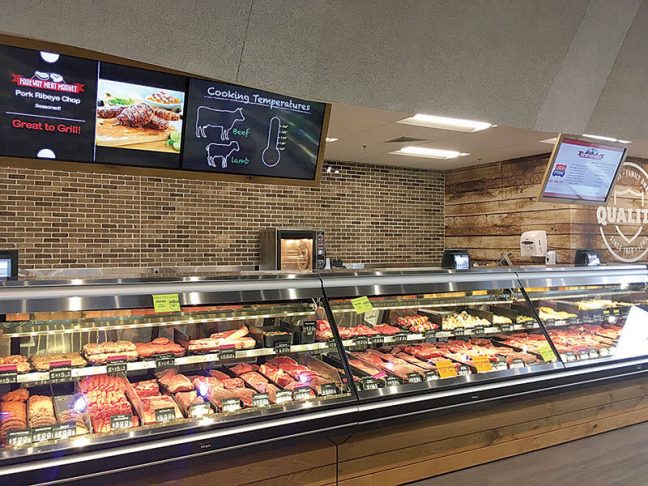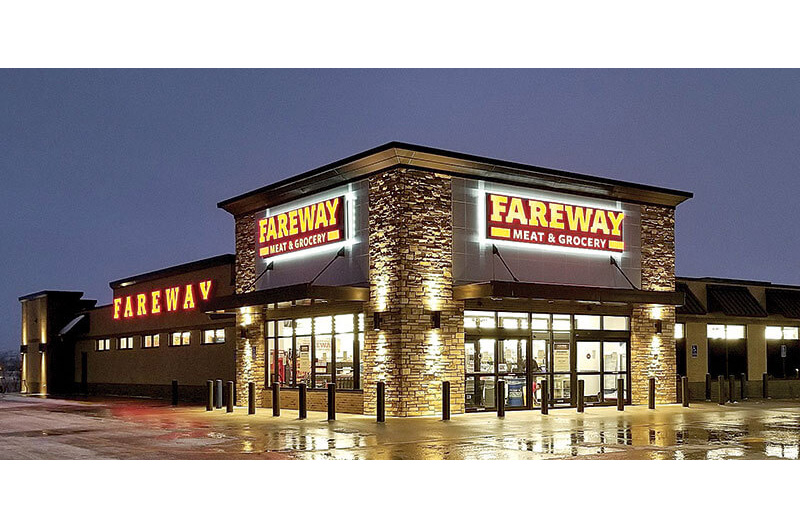Chain has found success with meat markets, ‘short shopping experience’
by Eric Pereira / staff writer
Boone, Iowa-based Fareway Stores is continuing to expand its footprint with varying store sizes across communities in the Hawkeye state.
In Iowa, the family-owned chain has more than 100 stores varying in size. In total, it has 127 stores and four meat markets across six states – with more on the way.

The traditional stores are anywhere from 20,000 to 25,000 square feet, according to Fareway Stores CEO Reynolds Cramer. However, the company’s smaller meat markets are continuing to make an impact as they also offer a quicker shopping experience.
The meat markets range from 5,000 to 6,000 square feet and are currently in four locations across the Midwest, including one in Ames, Iowa. The meat markets are typically aimed for larger cities, with Cramer noting that the next location soon will be coming to Des Moines. 
The markets are traditionally one large meat case with some specialty beers/wines and cheeses and other items.
“It’s a very short shopping experience…people can get in and out in about 10 minutes. [They] pick up something for dinner to grill, something to smoke over the weekend with a nice bottle of wine,” Cramer said.
“It just is really a good representation of what we do best in the Midwest. And that is sell the best beef, pork, etc. to our customers that is cut fresh every day and wrapped how you like it. It’s not coming in a tray that’s vacuum sealed and sitting on the shelf.”

According to Cramer, rural communities in Iowa have smaller footprint Fareway stores, such as an 8,000-square-foot location in the city of Colfax or a 10,000-square-foot store in Rockwell City, which they hope to open in February 2022.
Although organic and plant-based foods are gaining in popularity, Cramer said Fareway is seeing customer interest in foods used to prepare meals and that’s being led by the quality of its meats.
In regard to measures extending well past the COVID-19 pandemic, Fareway goes beyond food safety.
“I think what the pandemic did was it also created the idea of customer safety,” Cramer said. “I think moving forward into the future that’s going to be how we look at food safety and customer safety.”
That means continuing to sanitize and clean carts and touchpoint surfaces.
When it comes to online ordering, Cramer said Fareway rolled out e-commerce with groceries a few months back, and it’s up and running in nearly 100 percent of the company’s stores.
Fareway also has been using GrocerKey, an e-commerce platform personalized for independent and regional grocery retailers. Cramer sees this feature growing over time.
“One unique thing we have versus others is that you can place your order the night before or the morning of,” he said. “And then, 30 minutes before you’re coming to pick it up, you can text or send in an email, wanting to change an item or add an item…we can get that done for you, even in the last 30 minutes.”
Grocers in Iowa face a myriad of challenges, including shortages of labor and materials, high commodity costs and the continued effects of weather-related events, especially tornadoes.
“That’s obviously created a strain on the supply chain,” Cramer said. “And I’m really proud of the fact that Fareway has such good relationships with our vendor partners, that we for the most part have been able to keep supply in check.”
He’s noticed companies producing the same items in varying sizes, which has proven to be beneficial. However, Fareway’s focus remains on the long term.
“Probably one of the biggest things dealing with supply is the long-term forecast and being able to be out ahead of it and working with our suppliers or vendor partners to be looking at not just a month or two months from now, but six months from now,” he said. “I think some of our vendors are seeing that actually right now and moving into the end of this year, things are actually harder than they were a year ago during the pandemic.”
Fareway just broke ground on a new store in Olathe, Kansas, which will grow its footprint to seven states.
For all of the stores, Cramer said labor and customer service will continue to be priorities this year. “Our No. 1 goal right now is to continue to hire great people and give a great customer experience.”

